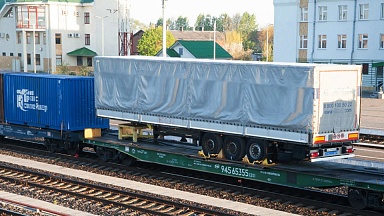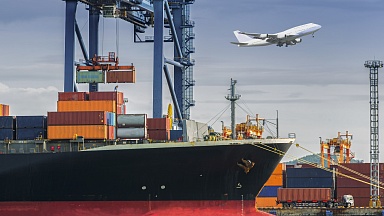The service aims to provide a predictable transit time of between 12 and 14 days for varying freight volumes. The operators say they will use a single system to synchronise each freight movement, allowing trains to operate to a fixed schedule.
UTLC ERA will provide rail transport over the 1520mm-gauge network between Altynkol and Kaliningrad, while BIT-Germany will arrange shipping services between the ports of Kaliningrad and Hamburg.
A pilot service was successfully operated in August, with trains now operating weekly along the route. This could be increased to up to two trains per day in October, depending on demand.
China-Europe freight flows increased 36% in the first half of 2020, with 5122 trains operating.





